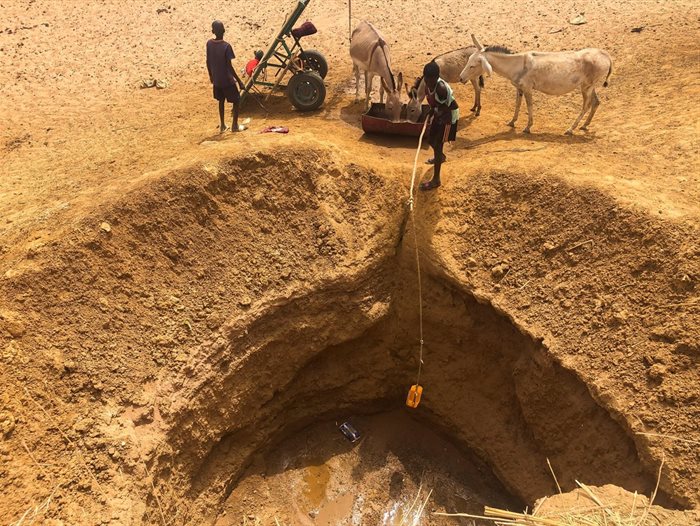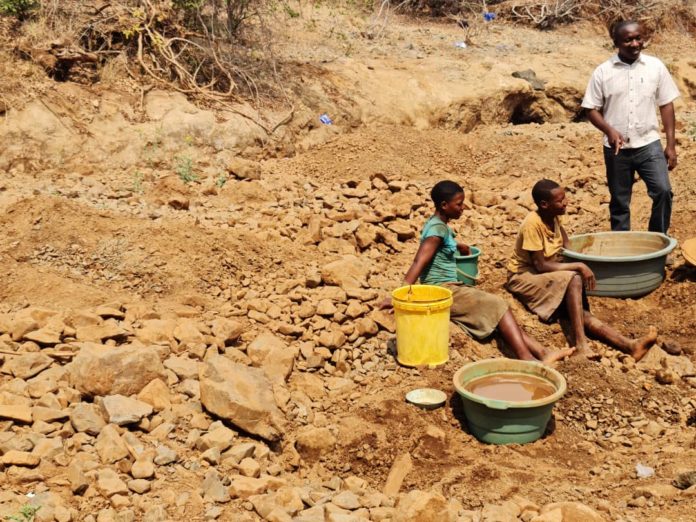Zimbabwe excavating riverbeds in a desperate attempt to get water
Due to the catastrophic drought that is affecting Southern Africa, 70 million people lack access to enough food and water. A people and their animals are gathered on a dry riverbank in the northern Zimbabwean province of Mudzi, where men are excavating the riverbed to retrieve the last few drops of water.
There is pressure on the water supply in Kurima village because more people are coming down to this particular riverbed as other portions of the district's rivers and dams have dried up. There are various holes in the riverbed big enough to hold a single bucket, where women wash clothes, children bathe, and cattle drink water. Five-time mother Gracious Phiri tells the BBC that she now needs to walk farther than normal to get water.
In Zimbabwe, food is scarce, and 7.7 million people live in famine. The proportion of Mudzi households who have access to reasonably priced, wholesome food has decreased by over 50% in comparison to prior years. Children have been especially hard hit; since June, hospital admissions for moderate-to-severe malnutrition have doubled.
In an effort to address the issue, a community feeding program has women get together once a week to make porridge for children under five. To add even more nutrients, mix in milk, peanut butter, ground baobab fruit, and leafy green veggies. But each week, the list of components gets shorter as low harvests make beans and cowpeas unavailable.
The government designed the village feeding program, which was implemented at least three times a week, with assistance from UNICEF. It is now only offered once a week on the program because to the El Niño drought.
Mudzi clinics that offer essential healthcare to Zimbabweans have also been impacted; a major dam's water supply is down to one month, and boreholes are drying up. Plans for irrigation of vegetables, one of which supported 200 local farmers, have been halted.
Ms. Mahachi, a mother from Zimbabwe, is one of the millions of people in Zimbabwe who depend on food aid. Her children must eat every day even if the village feeding program only offers food on one day of the week.
Ms. Mahachi uses wheat that a kind neighbor gives her to boil in order to feed her two kids breakfast. A staggering 68 million people in the region require food assistance as a result of the drought, which has caused a third of the countries in southern Africa to declare a state of calamity. The family now limits mealtimes rather than eating whenever and whatever they want.
Only a small portion of the $5.5 billion in help that the Southern African Development Community (Sadc) requested has been granted to address the consequences of the May drought. With family granaries empty and maize priced out of reach for many, the region is facing its worst corn shortage in fifteen years.
The food and water crisis has not yet peaked, and the UN World Food Programme (WFP) has only received 25% of the $400 million in emergency aid that it needs. Farmers would not be able to harvest maize until March if rain falls in November or December. Families in southern Africa are worried about this situation since they are finding it difficult to survive without food and water.


Comments
Post a Comment